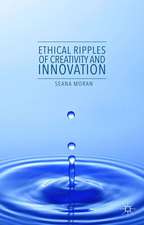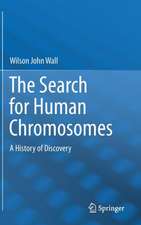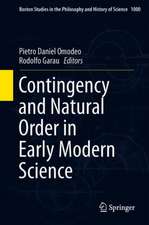New Perspectives on the History of Life Sciences and Agriculture: Archimedes, cartea 40
Editat de Denise Phillips, Sharon Kingslanden Limba Engleză Hardback – 10 mar 2015
| Toate formatele și edițiile | Preț | Express |
|---|---|---|
| Paperback (1) | 1118.45 lei 6-8 săpt. | |
| Springer International Publishing – 6 oct 2016 | 1118.45 lei 6-8 săpt. | |
| Hardback (1) | 1124.60 lei 6-8 săpt. | |
| Springer International Publishing – 10 mar 2015 | 1124.60 lei 6-8 săpt. |
Din seria Archimedes
- 5%
 Preț: 909.01 lei
Preț: 909.01 lei - 18%
 Preț: 899.21 lei
Preț: 899.21 lei - 18%
 Preț: 785.55 lei
Preț: 785.55 lei -
 Preț: 382.36 lei
Preț: 382.36 lei - 18%
 Preț: 1833.33 lei
Preț: 1833.33 lei - 15%
 Preț: 643.84 lei
Preț: 643.84 lei - 18%
 Preț: 951.77 lei
Preț: 951.77 lei - 15%
 Preț: 645.79 lei
Preț: 645.79 lei - 15%
 Preț: 644.30 lei
Preț: 644.30 lei - 20%
 Preț: 577.17 lei
Preț: 577.17 lei - 18%
 Preț: 1054.18 lei
Preț: 1054.18 lei - 15%
 Preț: 646.62 lei
Preț: 646.62 lei - 18%
 Preț: 1110.09 lei
Preț: 1110.09 lei - 18%
 Preț: 1211.25 lei
Preț: 1211.25 lei - 18%
 Preț: 730.02 lei
Preț: 730.02 lei - 18%
 Preț: 1546.82 lei
Preț: 1546.82 lei - 18%
 Preț: 891.48 lei
Preț: 891.48 lei - 18%
 Preț: 776.88 lei
Preț: 776.88 lei - 18%
 Preț: 1214.60 lei
Preț: 1214.60 lei - 18%
 Preț: 1113.26 lei
Preț: 1113.26 lei - 18%
 Preț: 777.69 lei
Preț: 777.69 lei - 18%
 Preț: 995.83 lei
Preț: 995.83 lei - 15%
 Preț: 635.47 lei
Preț: 635.47 lei - 24%
 Preț: 1459.25 lei
Preț: 1459.25 lei - 18%
 Preț: 948.47 lei
Preț: 948.47 lei - 18%
 Preț: 1666.97 lei
Preț: 1666.97 lei - 18%
 Preț: 1114.83 lei
Preț: 1114.83 lei - 15%
 Preț: 645.60 lei
Preț: 645.60 lei
Preț: 1124.60 lei
Preț vechi: 1371.47 lei
-18% Nou
Puncte Express: 1687
Preț estimativ în valută:
215.19€ • 225.28$ • 178.06£
215.19€ • 225.28$ • 178.06£
Carte tipărită la comandă
Livrare economică 05-19 aprilie
Preluare comenzi: 021 569.72.76
Specificații
ISBN-13: 9783319121840
ISBN-10: 3319121847
Pagini: 560
Ilustrații: VII, 509 p.
Dimensiuni: 155 x 235 x 35 mm
Greutate: 0.9 kg
Ediția:2015
Editura: Springer International Publishing
Colecția Springer
Seria Archimedes
Locul publicării:Cham, Switzerland
ISBN-10: 3319121847
Pagini: 560
Ilustrații: VII, 509 p.
Dimensiuni: 155 x 235 x 35 mm
Greutate: 0.9 kg
Ediția:2015
Editura: Springer International Publishing
Colecția Springer
Seria Archimedes
Locul publicării:Cham, Switzerland
Public țintă
ResearchCuprins
Chapter 1: Introduction; Denise Phillips and Sharon Kingsland.- Chapter 2: A Science of People, Places, and Land: Oekonomie and Local Knowledge in the German Enlightenment; Denise Phillips.- Chapter 3: Drawing the Line: Mapping Cultivated Plants and Seeing Nature In Nineteenth-Century Plant Geography; Nils Güttler.- Chapter 4: Rose and Pear Breeding in Nineteenth-Century France: The Practice and Science of Diversity; Cristiana Oghina-Pavie.- Chapter 5: Napoleonic Cotton Cultivation: A Case Study in Scientific Expertise and Agricultural Innovation in France and Italy, 1806-1814; Joseph Horan.- Chapter 6: Whale Oil Pesticide: Natural History, Animal Resources, and Agriculture in Early Modern Japan; Jakobina Arch.- Chapter 7: Forests, Climate, and the Rise of Scientific Forestry in Russia: From Local Knowledge and Natural History to Modern Experiments (1840s-1890s); Anastasia A. Fedotova and Marina V. Loskutova.- Chapter 8: The Rise of Applied Entomology in the Russian Empire: Governmental, Public and Academic Responses to Insect Pest Outbreaks from 1840 to 1894; Marina V. Loskutova and Anastasia A. Fedotova.- Chapter 9: Nutrition Science and the Practice of Animal Feeding in Germany, 1850-1880; Brendan Matz.- Chapter 10: Artificial or Biological? Nature, Fertilizer, and the German Origins of Organic Agriculture; Corinna Treitel.- Chapter 11: Science, Promotion, and Scandal: Soil Bacteriology, Legume Inoculation, and the American Campaign for Soil Improvement in the Progressive Era; Mark R. Finlay.- Chapter 12: Mold Cultures: Traditional Industry and Microbial Studies in Early Twentieth-Century Japan; Victoria Lee.- Chapter 13: The Co-production of Station Morphology and Agricultural Management in the Tropics: Transformations in Botany at the Botanical Garden at Buitenzorg, Java 1880-1904; Robert-Jan Wille.- Chapter 14: Regionalizing Knowledge: The Ecological Approach of the USDA Office of Dryland Agriculture on the Great Plains; Jeremy Vetter.- Chapter15: Rexford F. Daubenmire and the Ecology of Place: Applied Ecology in the Mid-Twentieth-Century American West; Adam M. Sowards.- Chapter 16: Agricultural Improvement at China’s First Agricultural Experiment Stations; Peter Lavelle.- Chapter 17: Did Mendelism Transform Plant Breeding? Genetic Theory and Breeding Practice, 1900-1945; Jonathan Harwood.- Chapter 18: Chicken Breeding: The Complex Transition from Traditional to Genetic Methods in the United States; Margaret E. Derry.- Chapter 19: Breeding Better Peas, Pumpkins, and Peasants: The Practical Mendelism of Erich Tschermak; Sander J. Gliboff.- Chapter 20: More than Metamorphosis: The Silkworm Experiments of Toyama Kametaro and his Cultivation of Genetic Thought In Japan's Sericultural Practices, 1894-1918; Lisa Onaga.- Chapter 21: Genetics and “Breeding as a Science”: Kihara Hitoshi and the Development of Genetics in Japan in the First Half of the Twentieth Century; Kaori Iida.- Chapter 22: Speeding Up Evolution: X-Rays and PlantBreeding in the United States, 1925-1935; Helen Anne Curry.- Chapter 23: Watching Grass Grow: The Emergence of Brachypodium distachyon as a Model for the Poaceae; Christopher W. P. Lyons and Karen-Beth Scholthof .- Index.
Recenzii
“The collection of essays edited by Denise Phillips and Sharon Kingsland is a much welcomed addition to the historiography of agriculture and life sciences. The twenty-two essays in the volume cover a remarkable temporal and spatial ground. … Anyone interested in the history of agriculture and life sciences will find the essays in this collection a rewarding reading. The best hope is that today’s readers may become in turn contributors to the intellectual agenda set out by the book.” (Giuditta Parolini, HPLS, Vol. 38, 2016)
Notă biografică
Denise Phillips is an associate professor at the University of Tennessee, where she teaches history of science and early modern European history. She received her PhD in the History of Science from Harvard in 2004, and in recent years she has been the recipient of fellowships from the DAAD, the Fulbright Commission and the Fritz Thyssen Foundation. Her first book, Acolytes of Nature: Defining Natural Science in Germany, 1770-1850, was published in 2012 with the University of Chicago Press. She is currently working on a study of the agricultural sciences in eighteenth and nineteenth-century Germany, with an emphasis on how the expansion of market-driven forms of agriculture shaped the goals and parameters of agricultural science. As part of this broader project, she is also interested in how learned traditions of natural history and natural philosophy interacted with discourses about agriculture, and in the ways that epistemic authority was secured within these fields.
Sharon Kingsland is professor in the Department of History of Science and Technology at the Johns Hopkins University, Baltimore. She received her Ph.D. from the University of Toronto in 1981, and since then has conducted research on many aspects of the history of modern life sciences. One focus of her research has been the history of ecological science, which is the subject of two books. Modeling Nature: Episodes in the History of Population Ecology (University of Chicago Press, 1985, 2nd edition 1995) explores the impact of mathematical modeling techniques in population ecology, in both academic and applied contexts, from the 1920s to the 1980s. The Evolution of American Ecology, 1890-2000 (Johns Hopkins University Press, 2005), examines the reasons for the rapid emergence of ecology as a discipline in the United States and the subsequent development of ecology through the 20th century, culminating in the emergence of urban ecology as a new frontier in the 21st century. Exploring the history of ecology led her to consider more deeply the agricultural context of biological work and the relationship between basic and applied fields in life sciences.
Sharon Kingsland is professor in the Department of History of Science and Technology at the Johns Hopkins University, Baltimore. She received her Ph.D. from the University of Toronto in 1981, and since then has conducted research on many aspects of the history of modern life sciences. One focus of her research has been the history of ecological science, which is the subject of two books. Modeling Nature: Episodes in the History of Population Ecology (University of Chicago Press, 1985, 2nd edition 1995) explores the impact of mathematical modeling techniques in population ecology, in both academic and applied contexts, from the 1920s to the 1980s. The Evolution of American Ecology, 1890-2000 (Johns Hopkins University Press, 2005), examines the reasons for the rapid emergence of ecology as a discipline in the United States and the subsequent development of ecology through the 20th century, culminating in the emergence of urban ecology as a new frontier in the 21st century. Exploring the history of ecology led her to consider more deeply the agricultural context of biological work and the relationship between basic and applied fields in life sciences.
Textul de pe ultima copertă
This volume explores problems in the history of science at the intersection of life sciences and agriculture, from the mid-eighteenth to the mid-twentieth century. Taking a comparative national perspective, the book examines agricultural practices in a broad sense, including the practices and disciplines devoted to land management, forestry, soil science, and the improvement and management of crops and livestock. The life sciences considered include genetics, microbiology, ecology, entomology, forestry, and deal with US, European, Russian, Japanese, Indonesian, Chinese contexts. The book shows that the investigation of the border zone of life sciences and agriculture raises many interesting questions about how science develops. In particular it challenges one to re-examine and take seriously the intimate connection between scientific development and the practical goals of managing and improving – perhaps even recreating – the living world to serve human ends. Without close attention tothis zone it is not possible to understand the emergence of new disciplines and transformation of old disciplines, to evaluate the role and impact of such major figures of science as Humboldt and Mendel, or to appreciate how much of the history of modern biology has been driven by national ambitions and imperialist expansion in competition with rival nations.
Caracteristici
Offers an exceptional comparative perspective on life sciences and agriculture Explains the emergence and transformation of life science disciplines Underscores the connection between life sciences, economy and politics Helps to link scholarly communities in the history of life science and history of agriculture Presents a new perspective on the role of "founding fathers" in science such as Humboldt, Mendel Includes supplementary material: sn.pub/extras



























